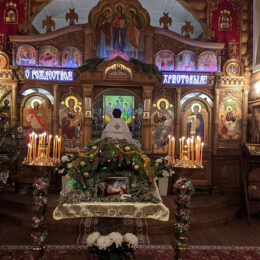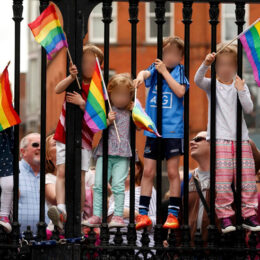FrontPageMag | Jamie Weinstein | July 9, 2008
“One day, I discovered three kernels of corn in a small pile of cow dung, picked them up and cleaned them with my sleeve before eating,” says Shin In-kun at www.northkoreanrefugees.com. “As miserable as it may seem, that was my lucky day.”
You may be asking yourself in what twisted world could that revolting story be considered a lucky day? Welcome to North Korea.
Shin was born in 1982 in a North Korean prison camp. Growing up in this misery, he knew almost nothing of the outside world. He barely met his father and his brother. Though he lived with his mother for 12 years in the camp, she was worked from 5:00 a.m. to 11:00 p.m. every day, so Shin hardly had any significant relationship with her.
At the age of 12, Shin was separated from his mother and put to work in the concentration camp. This was not your typical summer job at the local shopping mall. It was the type of work where it wasn’t uncommon for Shin to see four to five children killed in a day.
Shin later discovered during a torture session to which he was subjected that the reason he and his family were in the concentration camp was that some of his ancestors had helped the South Korean government in the Korean War. It didn’t matter that the war occurred decades before Shin was even born. He had to be punished for the sins of his family.
During this particular session, Shin was being tortured because his mother and brother tried to escape the camp, something of which Shin knew nothing. Nonetheless, Shin was tied up and chained to the ceiling with a flame lit beneath him. In other words, he was being roasted alive. Later, after Shin slowly recovered, he was taken to watch his brother and mother be publicly executed.
After learning about the outside world from a new inmate to the camp, Shin was awakened to a new reality. For the first time in his life, he realized that not everyone lived the way he did. So in 2005, while sent to collect fire wood on a mountain, Shin miraculously found an opening and escaped. Ultimately, he made it to South Korea by way of China. This was no easy journey in itself.
Shin’s story reflects the horrid life in North Korean concentration camps. Those who reside in these camps often have committed no real crime themselves. Rather, they are paying for the “crime” of an ancestor.
But the world outside these concentration camps is not dramatically better than the world inside them. North Korea is a prison state. Its population is subjected to the twisted universe of Kim Jong Il. The “Dear Leader” indoctrinates his population to believe that their country is a paradise and that he is, at various times, “the God of the Contemporary World,” “the Saint of all Saints” and a deity whose “love and trust in the popular masses are so absolute as to have no condition whatsoever and so broad as to have no limit.”
A famine in the mid-1990s brought about by idiotic management of the North Korean economy may have killed as many as 3 million people, or about 15 percent of the North Korean population. As Jasper Becker writes in his book Rouge Regime, “a death toll of 3 million would mean more victims than in Pol Pot’s Cambodia . . . if 15 percent of [North Korea’s] population died, then the death toll, in proportion to the country, surpasses any comparable disaster in the 20th Century.”
. . . more



